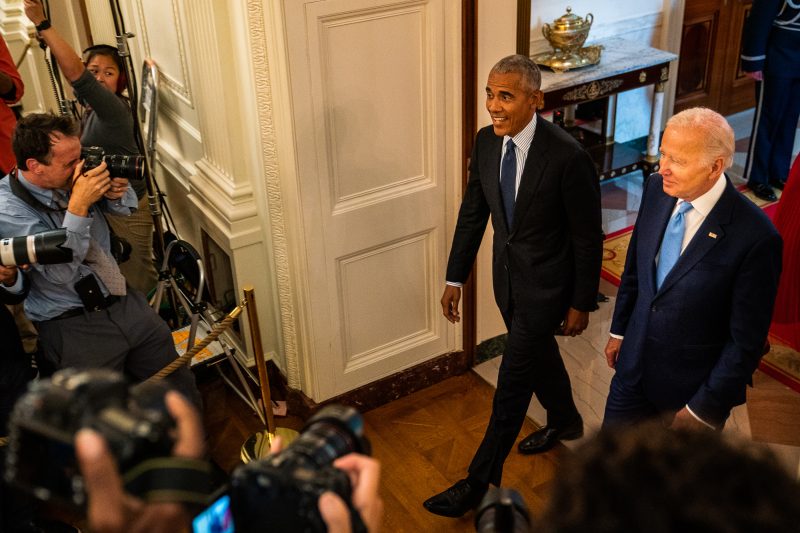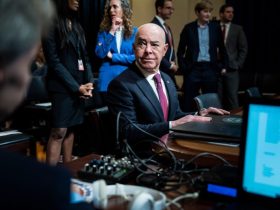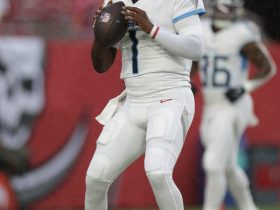Former president Barack Obama has told allies in recent days that President Biden’s path to victory has greatly diminished and he thinks the president needs to seriously consider the viability of his candidacy, according to multiple people briefed on his thinking.
Obama has spoken with Biden only once since the debate, and he has been clear in his conversations with others that the future of Biden’s candidacy is a decision for the president to make. He has emphasized that his concern is protecting Biden and his legacy, and has pushed back against the idea that he alone can influence Biden’s decision-making process.
Behind the scenes, Obama has been deeply engaged in conversations about the future of Biden’s campaign, taking calls from many anxious Democrats, including former House speaker Nancy Pelosi (D-Calif.), and has shared his views about the president’s challenges, according to people with knowledge of the calls, who spoke on the condition of anonymity to discuss private conversations.
A spokesperson for Obama declined to comment.
Obama sees his role as a sounding board and counselor to his former vice president, telling allies that he feels protective of Biden. In these conversations, Obama has said he thinks Biden has been a great president and wants to protect his accomplishments, which could be in jeopardy if Republicans control the White House and both chambers of Congress next year.
In some conversations, Obama, who has long looked to data for political insights, has told people he is concerned that the polls are moving away from Biden, that former president Donald Trump’s electoral path is expanding and that donors are abandoning the president.
Publicly, Biden and his campaign advisers have remained defiant, saying the president will not drop out of the race. On Wednesday, Biden cut short a campaign swing in Las Vegas because he tested positive for the coronavirus. He returned to Rehoboth Beach, Del., where he has a vacation home, to quarantine.
Principal deputy campaign manager Quentin Fulks said Thursday morning that Biden’s campaign was moving ahead. “He is not wavering on anything,” Fulks said. “The president has made his decision. I don’t want to be rude, but I don’t know how many more times we can answer that.”
Obama’s concerns come against the backdrop of a widening anxiety gripping the Democratic Party about Biden’s prospects and their potential impact on other candidates. Democratic donors, activists and elected officials are increasingly turning to a small group of veteran elected leaders to help guide them out of the crisis created by Biden’s bungled June 27 debate performance.
Congress’s top Democrats, House Minority Leader Hakeem Jeffries (N.Y.) and Senate Majority Leader Charles E. Schumer (N.Y.), have both spoken directly with Biden in the past week, warning about the widely held concerns that his candidacy could hurt the chances for Democratic control of either legislative body next year.
Pelosi has taken an even more active role behind the scenes, resisting efforts by Biden to end the debate about his continued candidacy, according to people familiar with her efforts, who spoke on the condition of anonymity to discuss sensitive matters.
Obama, perhaps the party’s most revered figure, has tried to keep a lower profile, hoping to draw on his longtime friendship with Biden, his former running mate and vice president. But Obama’s role as the leader of the party from 2008 to 2016 has made him a sounding board for concerns across the party.
Former Obama advisers who continue to comment publicly on politics, from his counselor David Axelrod to a group of more junior aides who now run the Crooked Media podcast company, are among the most vocal Democrats arguing that Biden may no longer have a path to victory.
Democrats have watched national polls shift away from Biden since the debate, and they now show the president trailing in the northern battleground states. Strategists are bracing for the possibility that Trump gets another boost out of his nominating convention, as he did in 2016 and 2020, along with a possible increase in his favorability ratings after Saturday’s assassination attempt on him.
The Post previously reported that Obama has shared concerns about Biden’s path forward after the debate and that the two presidents spoke in the days after. But in the weeks since, Obama’s concerns about Biden’s candidacy have only grown deeper, the people familiar with the matter said.
Meanwhile, some of Biden’s aides have fumed about Obama’s role in these conversations, blaming him for not keeping the party united behind Biden’s candidacy. After the debate, Obama posted a supportive message on social media for Biden.
“Bad debate nights happen,” Obama wrote. “Trust me, I know. But this election is still a choice between someone who has fought for ordinary folks his entire life and someone who only cares about himself.”
Since then, Obama has largely been silent publicly. But Biden aides say Obama could have stopped Academy Award-winning actor George Clooney, a close friend of the former president, from writing an op-ed in the New York Times that called on Biden to drop out of the presidential race.
Movie mogul Jeffrey Katzenberg, a top Biden campaign official, sought to stop Clooney, a longtime friend of his, from publishing the piece but was unsuccessful, according to a person familiar with his outreach.








